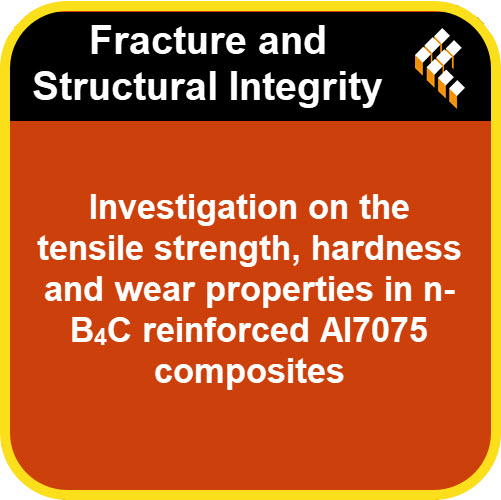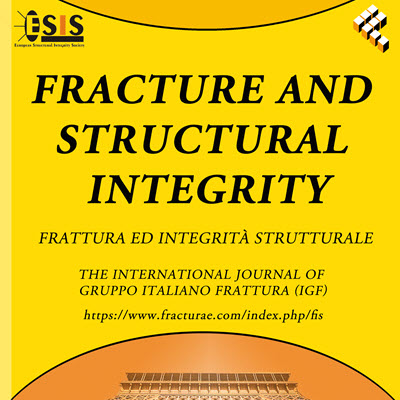Fracture and Structural Integrity: The Podcast
Stay at the cutting edge of fracture mechanics and structural integrity research with the official podcast of the Fracture and Structural Integrity journal. Join us for insightful interviews with top researchers, in-depth discussions of groundbreaking papers, and explorations of emerging trends in the field.
RSS Spotify YouTube Amazon Music
Investigation on the tensile strength, hardness and wear properties in n-B4C reinforced Al7075 composites
2025-06-06
https://www.fracturae.com/index.php/fis/article/view/5400
The impact of n-B4C on the mechanical and tribological behavior of Al7075 particle reinforced composites were assessed by analyzing samples of the resultant nano-composites for micro-structure, hardness, tensile strength, and wear behavior using stircasting technology. According to microstructural research, nanoparticles were dispersed throughout the specimen space. Adding the wt. % of nano B4C resulted in a considerable improvement in hardness (17.89%) and tensile strength (13.75%). Because of the cleavage that forms on the fractured surfaces of Al+n-B4C nanocomposites, fractography analysis on the fractured tensile specimens revealed brittle fracture for the n-B4C reinforcement composites and ductile fracture for unreinforced aluminum. By adjusting the process conditions, the dry sliding wear characteristics of n-B4C reinforced aluminum alloys were investigated using Taguchi's Design of Experiment Methodology. The independent process factors were determined to be the applied load (7-21N), the sliding speed (750-1250 rpm), and the reinforcement composition (0-3 weight percent of n-B4C). The L27 orthogonal array by Taguchi was selected to react based on the coefficient of friction and wear rate. The following processing parameters were determined to be optimal for the highest wear rates: 750 rpm sliding speed, 7 N load, and 3 weight percent reinforcement. Similarly, the optimal processing parameters for assessing Coefficient of Friction (COF) were determined to be 3 wt. % reinforcement, 21 N load, and a sliding distance of 1250 rpm.
DownloadFiletype: MP3 - Size: 20 MB - Duration: 17:00m (160 kbps 24000 Hz)
Powered by Podcast Generator, an open source podcast publishing solution | Theme based on Bootstrap
